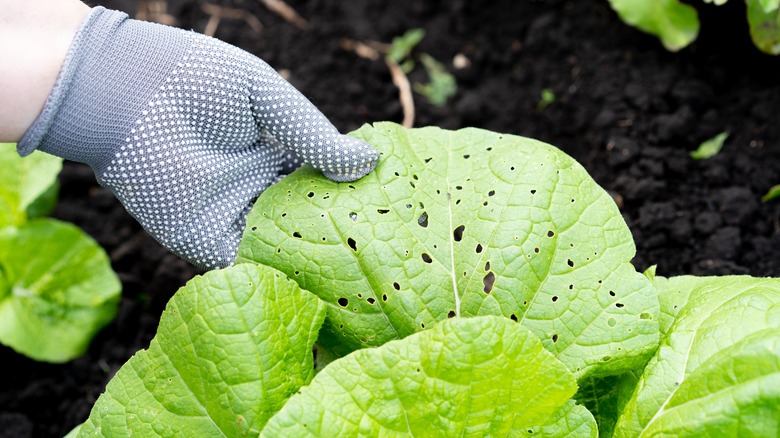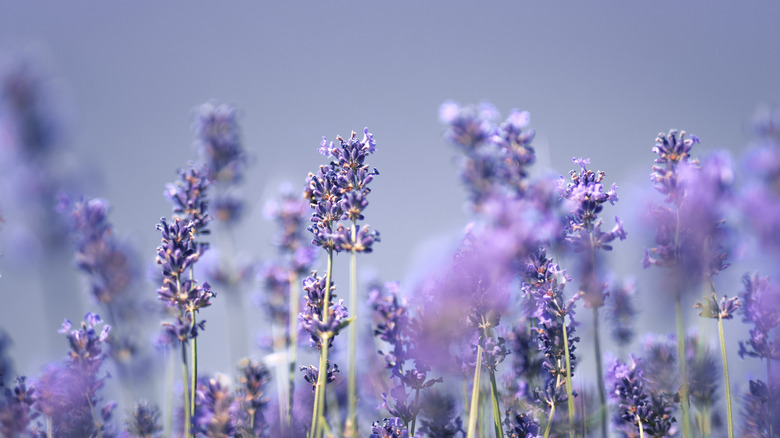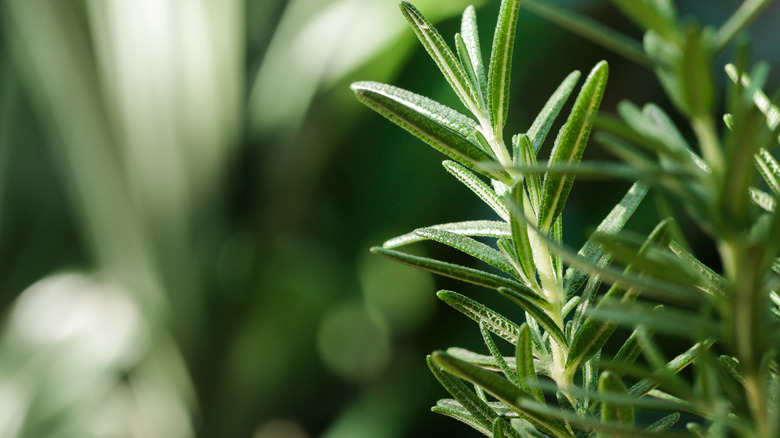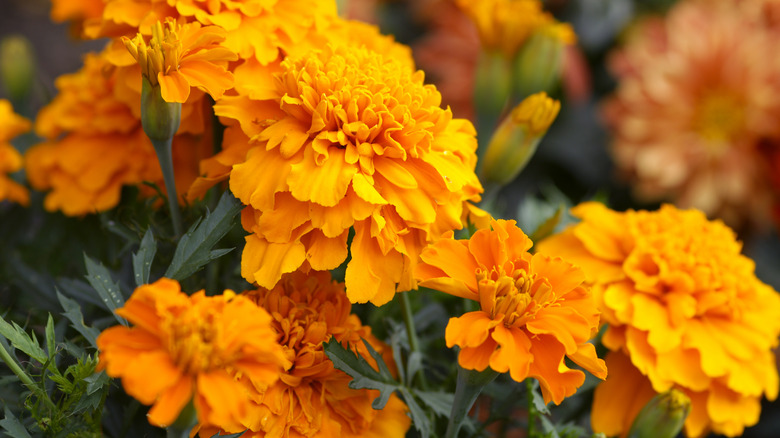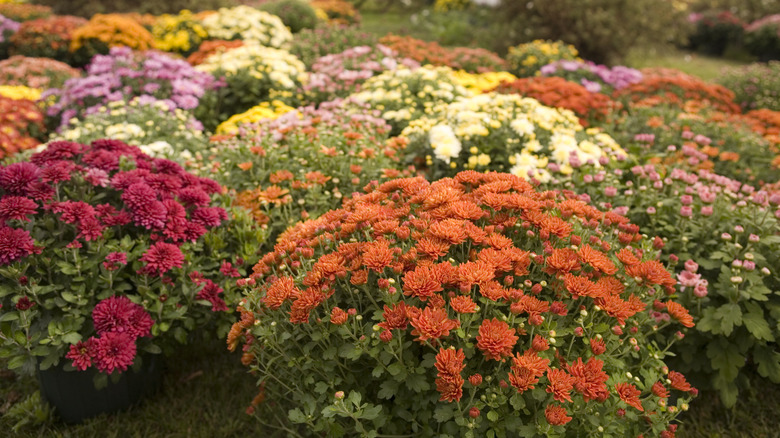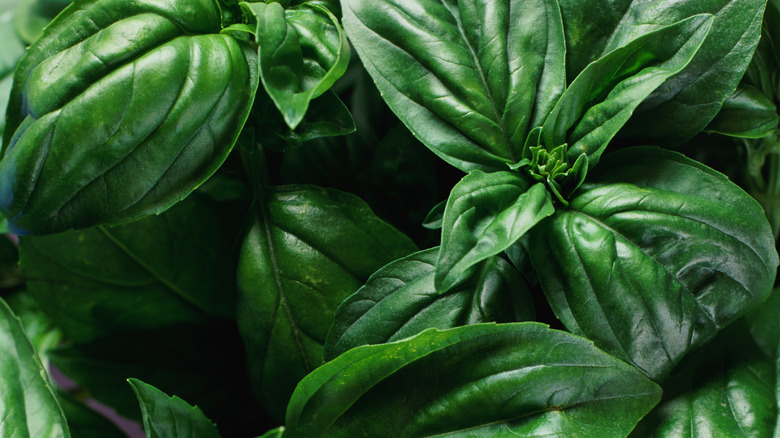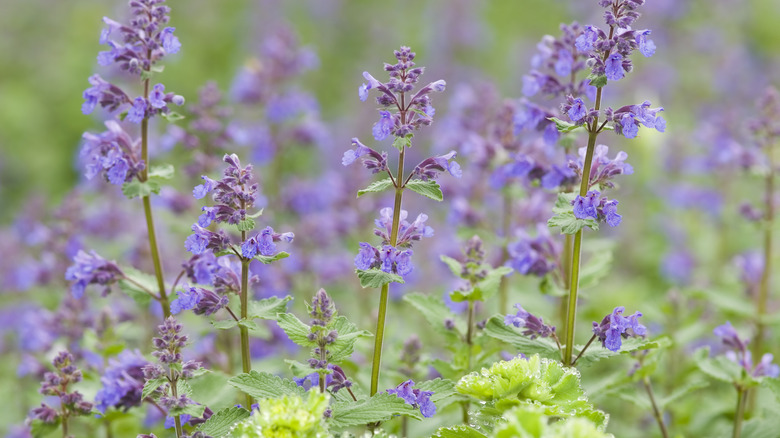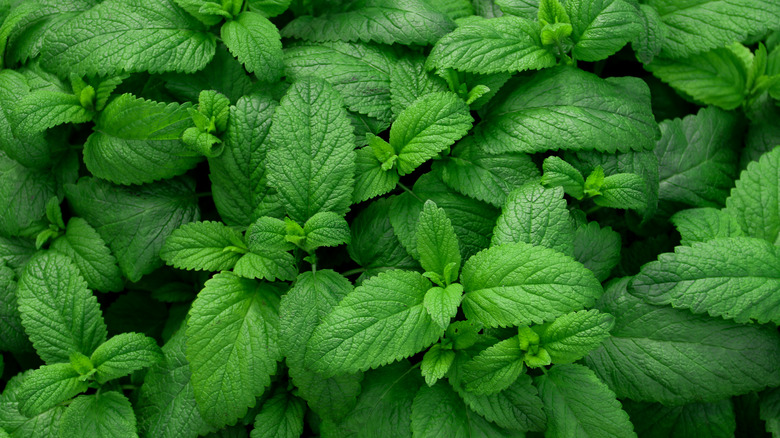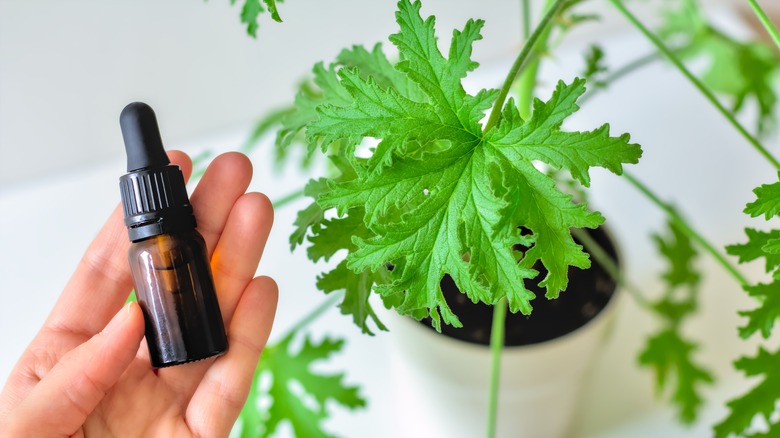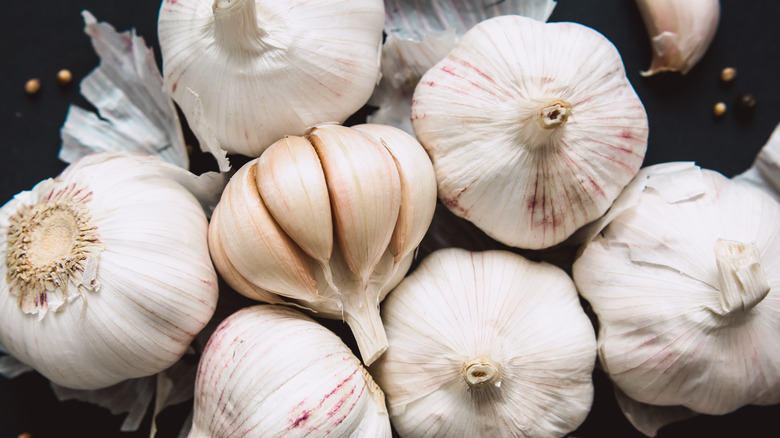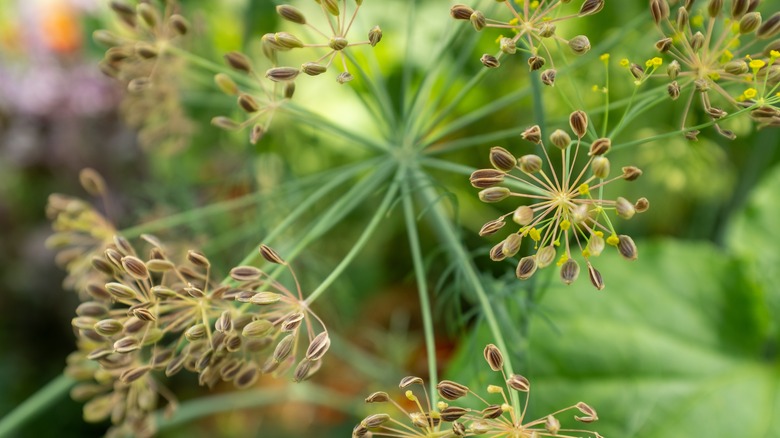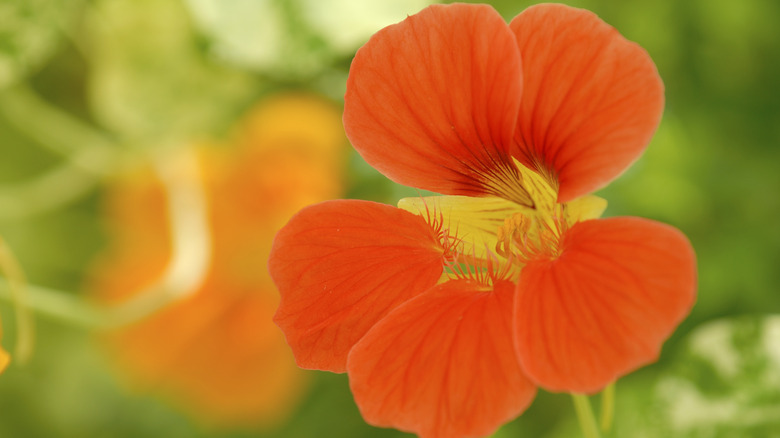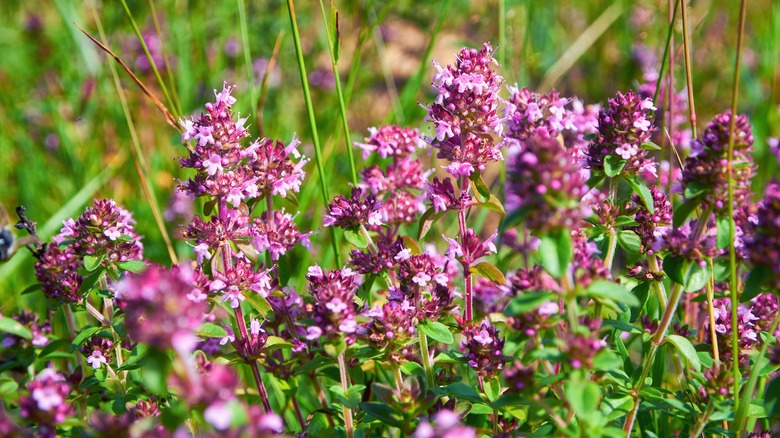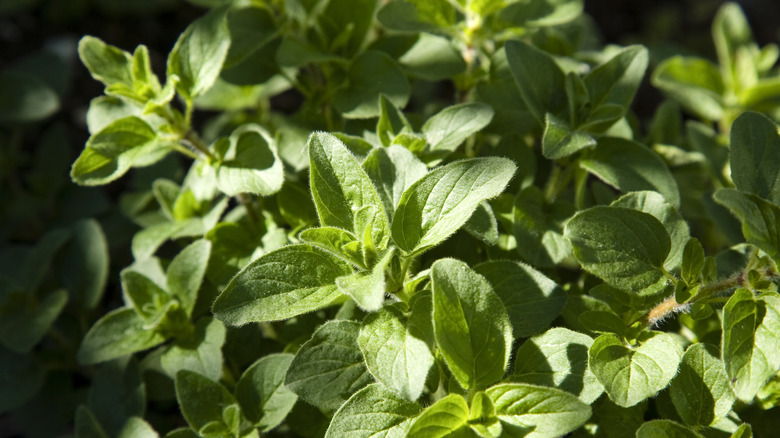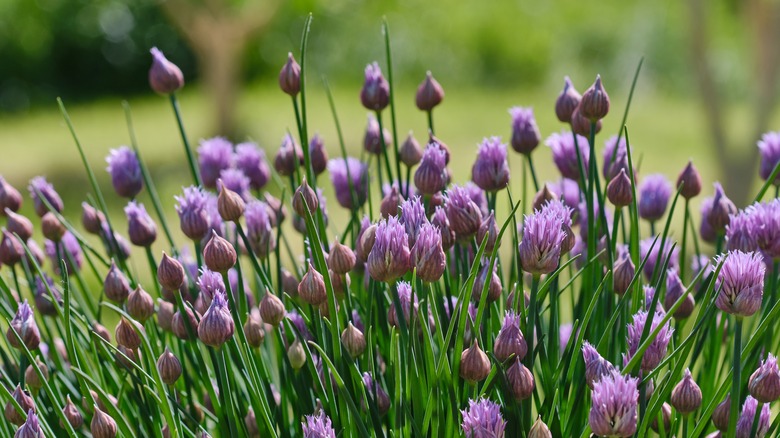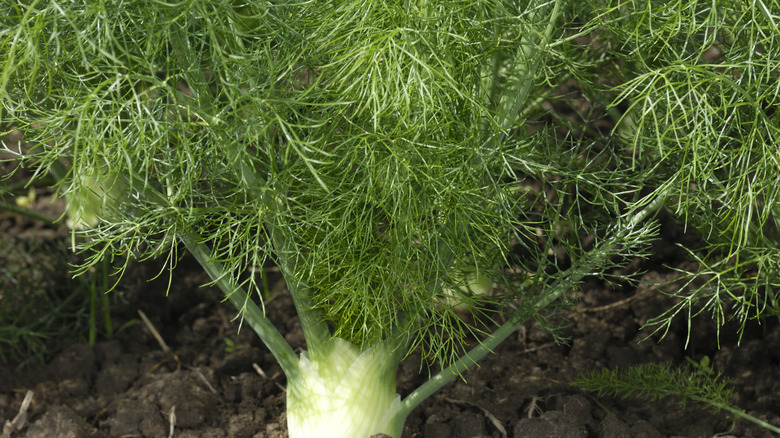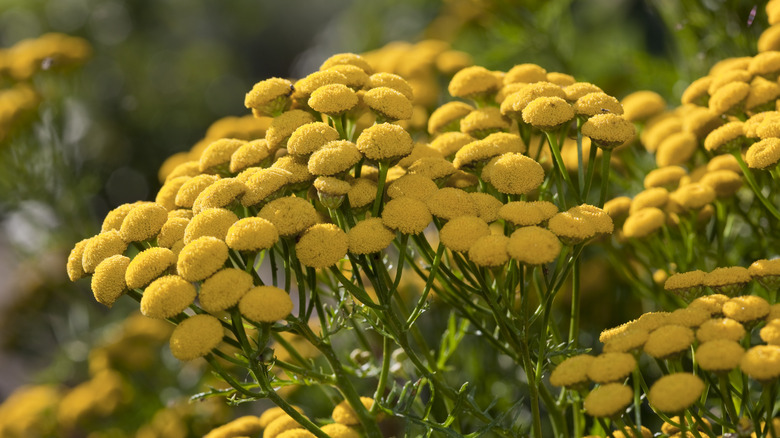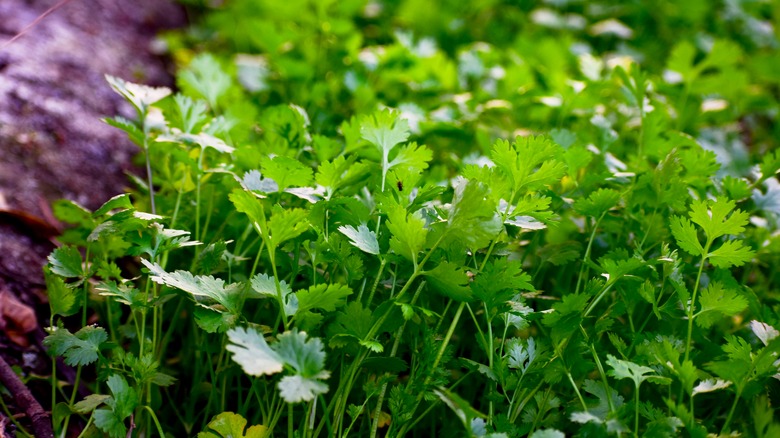17 Plants That Will Repel Pests From Your Garden Naturally
Welcome to your garden — a sanctuary of serenity, a realm where nature's silent warriors stand vigilant, ready to shield your verdant haven from the encroachment of unwanted pests. Bid farewell to the era of harsh chemical pesticides, and open your arms to the gentle embrace of natural defenders. In this curated paradise, we present to you a meticulously chosen array of 17 remarkable plants — nature's own sentinels — whose purpose transcends mere aesthetics. These botanical guardians not only bestow beauty upon your garden but also fortify it as an organic bastion against the persistent onslaught of pests.
Picture this: a harmonious blend of fragrances, colors, and textures, all orchestrated by the flora that adorns your haven. Each of these plants, from lavender to chrysanthemum, effortlessly enhance the aesthetic tapestry of your garden while actively standing guard against the threats that could compromise its vitality. So, immerse yourself in the narrative of these green guardians, whose collective mission is to transform your garden into a thriving, pest-free haven.
Lavender
Lavender (Lavandula spp.), with its delicate yet robust demeanor, emerges as a multi-faceted marvel in the world of garden guardians. Beyond its role as a visual delight, this aromatic herb unveils a repertoire of natural defenses, creating a haven where pests dare not tread. The flower's ethereal scent is not merely a sensory indulgence; it serves as a formidable deterrent against the relentless advances of mosquitoes, moths, and fleas. As the gentle breeze carries the essence of lavender through the garden, it acts as a natural force field, warding off these nuisance insects with elegance and ease.
This botanical sentinel does more than repel pests; the subtle yet distinct fragrance not only fends off airborne pests but also imparts a calming influence on the atmosphere, turning your garden into a refuge for both plants and admirers alike. But the magic of lavender doesn't end there. This resilient herb also contributes to the overall health of your garden by attracting beneficial pollinators, such as bees and butterflies. In its role as a pollinator magnet, lavender ensures the continued fertility and vibrancy of your green space.
Rosemary
Step into the aromatic world of rosemary (Rosmarinus officinalis), a culinary and aromatic powerhouse that transcends the boundaries of mere herbaceous charm. As the sun-kissed leaves of rosemary sway gently in the breeze, they release an invigorating fragrance that not only captivates your senses but serves as a natural deterrent to a trio of unwelcome guests: ticks, mosquitoes, and carrot flies. This herb's aromatic prowess extends beyond the realm of culinary delight, creating an invisible shield that protects your garden from these potential nuisances.
Rosemary invites you to savor the dual pleasures of protection and culinary enrichment. In the kitchen, rosemary unveils its second act, infusing your meals with a burst of flavor that elevates even the simplest dishes. From roasted vegetables to grilled meats, this culinary companion adds a distinct herbal note, transforming each bite into a sensory journey. The beauty of rosemary lies not only in its culinary versatility but also in its ability to seamlessly transition from kitchen staple to garden guardian.
Moreover, this herb doesn't merely repel pests; it actively contributes to the ecological balance of your garden by attracting beneficial insects like bees and butterflies, ensuring a harmonious coexistence that extends far beyond its immediate surroundings.
Marigold
Marvel at the kaleidoscope of golden, orange, and red blooms that marigolds generously bestow upon your garden. As these lively flowers sway in the gentle breeze, they bring not only a visual feast but also a powerful defense against nematodes, the microscopic adversaries that can wreak havoc on your plants' root systems.
According to a 2010 review published in Applied Soil Ecology, marigolds (Tagetes spp.), through their intricate root system and the compounds they release into the soil, act as natural nematode repellents. These soil-borne pests, notorious for causing damage to crops and flowers, are thwarted by the protective presence of marigolds. This floral guardian creates a no-go zone for nematodes, preserving the vitality of your garden's root network and ensuring the health of your cherished plants.
Beyond the strategic battle against nematodes, marigolds become ambassadors of color, transforming your garden into a lively canvas that reflects the vibrancy of nature. The radiant blossoms not only captivate the eyes but also beckon beneficial pollinators, such as bees and butterflies, enhancing the overall biodiversity of your green sanctuary.
Chrysanthemum
Nestled among the lush greenery, chrysanthemums (Chrysanthemum cinerariifolium) stand as vigilant protectors armed with pyrethrin (via National Pesticide Information Center), a natural insecticidal compound derived from their petals. This botanical marvel acts as a potent shield against a diverse army of pests, including mosquitoes, flies, ants, and mites. Pyrethrin, while lethal to insects, is environmentally friendly and poses minimal risk to humans and beneficial garden organisms.
As day turns to dusk, and the evening chorus of insects begins, chrysanthemums continue their role as nature's sentinels, warding off mosquitoes with the subtle potency of pyrethrin. This natural insect repellent not only protects your garden but also extends its protective embrace to the outdoor spaces where you and your loved ones gather, fostering a peaceful coexistence between humans and the natural world.
In the garden adorned with chrysanthemums, witness the seamless integration of beauty and functionality. The presence of chrysanthemums not only adds a burst of color but also establishes a natural line of defense, ensuring the well-being of your cherished flora. These flowers, with their intricate petals and diverse color palette, are not merely decorative; they are a living testament to the intricate mechanisms that nature employs to maintain balance.
Basil
In the heart of your garden, basil (Ocimum basilicum) stands as a stalwart defender against a trio of bothersome pests: mosquitoes, flies, and thrips. As detailed in a 2022 article published in Chemical and Biological Technologies in Agriculture, the secret lies in its aromatic oils which, while delightful to our senses, create an olfactory fortress that these insects find repelling.
But basil's role as a protector extends beyond pest management. This herb weaves itself into the fabric of your garden, enhancing the flavor profiles of its neighboring plants. As basil releases its distinctive aroma, it imparts a subtle influence on the taste of nearby crops, creating a harmonious interplay of flavors that elevates the culinary potential of your entire garden.
Consider, for a moment, the symbiotic relationship between basil and its plant companions. As it safeguards them from intrusive pests, it also imparts a touch of its aromatic essence, transforming ordinary vegetables into culinary masterpieces. Tomatoes, peppers, and other garden denizens benefit not only from the protective shield of basil but also from the culinary enhancement it bestows upon them.
Catnip
As catnip (Nepeta cataria) gracefully sprawls in your garden, emitting an irresistible allure to cats, it simultaneously sends an unspoken message to less welcome visitors. As per a 2001 article published in Royal Entomological Society, the aromatic oils that cats find enchanting act as a natural deterrent for mosquitoes, ensuring that your outdoor haven remains a serene retreat rather than a buzzing battleground. Imagine a garden where the playful antics of cats coincide with the absence of bothersome mosquitoes, creating a harmonious balance between the whimsy of nature and the tranquility of your space.
But catnip's role as a guardian extends beyond mosquitoes; it also stands as a steadfast defender against ants and aphids. These tiny intruders, often unwelcome guests in our gardens, find the aromatic properties of catnip unappealing. Catnip creates a subtle barrier that discourages their presence, allowing your plants to flourish without the risk of aphid infestations.
Catnip, with its aromatic charm and pest-repelling prowess, transforms your garden into a haven where cats frolic freely, and pests dare not disrupt the natural equilibrium. Welcome to a space where the whimsy of catnip meets the practicality of pest control, creating a garden that delights both humans and their feline friends.
Mint
As the aromatic leaves of mint (Mentha spp.) unfurl, they release a potent scent that acts as a deterrent, creating an invisible barrier against the march of ants, and more specifically, fire ants, as detailed in a 2004 article in the Journal of Economic Entomology. Picture a garden where the reassuring presence of mint dissuades these tiny invaders from disrupting the tranquility of your outdoor sanctuary. Mint becomes a fragrant sentinel, ensuring that your garden remains an ant-free zone.
Mint's aromatic prowess extends beyond ant control, reaching into the realm of mosquito management. The strong scent of mint becomes a natural repellent, discouraging mosquitoes from making your garden their hunting ground. Imagine evenings in your garden, where the refreshing aroma of mint fills the air, providing a pleasant atmosphere while fending off these buzzing nuisances.
As well, cabbage moths, known for their penchant for feasting on cruciferous plants, meet their match in the formidable fragrance of mint. This herbaceous guardian creates an environment that cabbage moths find inhospitable, protecting your brassicas and leafy greens from potential infestations.
Citronella
The distinctive scent of citronella (Cymbopogon spp.) is a well-documented deterrent for mosquitoes, making it a must-have for those seeking respite in their outdoor sanctuaries. Imagine a garden where the air is infused with the invigorating aroma of citronella, transforming your space into a mosquito-free zone. This natural mosquito repellent allows you to enjoy the serenity of your outdoor haven without the constant buzz and bites that often accompany warm evenings.
A 2007 article published in Entomological Research attributes citronella's efficacy as a mosquito repellent to its high citronellal and geraniol content, compounds known for their ability to disrupt the mosquitoes' sensory receptors. As a result, mosquitoes are deterred from invading your space, providing a natural and pleasant solution to the age-old problem of these winged intruders.
Whether planted in the ground or potted on your patio, citronella grass serves as a living barrier, creating a fragrant shield that extends its protective influence throughout your outdoor area. Its presence not only fends off mosquitoes but also adds a touch of vibrant greenery, contributing to the visual appeal of your garden.
Garlic
The robust scent of garlic (Allium sativum) is a powerful tool against aphids, those tiny sap-sucking pests that can wreak havoc on your plants. In addition, mosquitoes, notorious for their persistent buzzing and irritating bites, find the pungent aroma of garlic equally displeasing. A garden adorned with garlic becomes a haven where the aromatic defense mechanism repels mosquitoes, allowing you to enjoy your outdoor space without the constant annoyance of these airborne intruders.
Spider mites, with their penchant for draining the life out of plant leaves, also encounter a formidable foe in the form of garlic. The naturally occurring compounds in garlic act as a deterrent against these tiny arachnids, ensuring that your plants remain free from the damaging effects of spider mite infestations.
Garlic's dual role as a culinary delight and a pest-repelling guardian creates a harmonious synergy in your garden. As you savor the rich flavors it imparts to your dishes, appreciate the fact that it is simultaneously contributing to the health and vitality of your plants. Embrace garlic as more than just a kitchen essential and ensure your garden thrives in both flavor and foliage.
Dill
In the midst of your garden, dill (Anethum graveolens) stands tall, its lacy leaves swaying gently in the breeze, creating an elegant dance that extends far beyond its immediate surroundings. The fragrance of dill acts as a beacon, inviting beneficial insects to join the performance. Ladybugs, those charming polka-dotted defenders, are drawn to the intricate allure of dill, ready to feast on aphids and other garden nuisances that threaten the delicate balance of your green sanctuary.
But the magic doesn't stop there. Parasitic wasps, the unsung heroes of pest control, are also enticed by the aromatic embrace of dill. These tiny wasps lay their eggs on or inside harmful insects, providing a natural and effective means of biological pest control. Dill, with its gracious invitation, becomes a hub of activity where beneficial insects find both refuge and sustenance.
In this dance of nature, dill doesn't merely repel aphids; it actively fosters an ecosystem where the balance between predator and prey is delicately maintained. The aromatic charm of dill transforms your garden into a haven where the beneficial insects thrive, ensuring that pest populations are kept in check without the need for harmful chemical interventions.
Nasturtium
Picture a garden where the lively hues of nasturtium blooms create a visual spectacle, drawing attention not only for their aesthetic appeal but also for their pest-deterrent capabilities. Nasturtium (Tropaeolum majus) serves as a trap crop, diverting the attention of aphids away from your prized plants. These tiny, sap-sucking insects are irresistibly drawn to the succulent foliage of nasturtium, effectively luring them away from your other crops.
But those at Gardening Know How know that the benefits of nasturtium extend beyond aphid management. Whiteflies, those delicate yet persistent winged pests, find the aromatic properties of nasturtium displeasing. In the company of nasturtium, your garden becomes an environment where whiteflies are discouraged from settling, ensuring the vitality of your plants.
Cucumber beetles, with their penchant for munching on cucumber and squash leaves, encounter a formidable challenge in the presence of nasturtium. The natural compounds released by nasturtium act as a deterrent, creating an environment that cucumber beetles find unappealing, safeguarding your cucurbit crops from potential infestations. Squash bugs, known for their threat to squash and pumpkin plants, also meet their match in the strategic placement of nasturtium. The pest-repelling properties of nasturtium contribute to a more resilient garden, where these unwanted intruders are kept at bay.
Thyme
As the aromatic essence of thyme (Thymus spp.) fills the air, monoterpenes released into the atmosphere effectively deter a number of pesky flies. According to Planet Natural, cabbage worms, notorious for their appetite for cruciferous crops, encounter a formidable deterrent in the form of thyme. The aromatic compounds released by thyme become an invisible barrier, discouraging these voracious pests from settling in and causing damage.
Tomato hornworms, with their large size and insatiable appetite for tomato leaves, also find themselves repelled by the aromatic charm of thyme. Your tomato plants become fortified against these potential invaders, and the robust growth of your precious crops is, thankfully, preserved.
Whiteflies, those delicate yet persistent winged insects, also meet their match in the aromatic embrace of thyme. The fragrance that enchants humans becomes an unwelcome environment for whiteflies, ensuring that your garden remains free from the damages caused by these sap-sucking pests.
Oregano
Step into the aromatic world of oregano (Origanum vulgare), where the pungent fragrance not only adds depth to your culinary endeavors but also positions this herb as a valuable ally in the garden. As explained in a 2015 article found in Southwestern Entomologist, the intense scent released by oregano creates an environment that aphids find unappealing, forming an invisible shield that preserves the vitality of your plants. Oregano becomes a fragrant guardian, ensuring that your garden remains a sanctuary free from the damage caused by these sap-sucking insects.
Spider mites, those tiny arachnids notorious for their web-spinning and plant-damaging activities, also encounter a formidable opponent in the aromatic embrace of oregano. The pungent oils released by oregano act as a natural repellent, discouraging spider mites from infesting your garden and safeguarding the health of your plants.
Beyond its pest-deterrent prowess, oregano contributes to the overall biodiversity of your garden. The aromatic allure of its blossoms attracts beneficial insects, creating a balanced ecosystem where predators thrive, helping to keep pest populations in check.
Chive
As the slender leaves of chives (Allium schoenoprasum) sway in the breeze, the delicate onion aroma acts as a natural deterrent for aphids, according to the Southern Seed Exchange. These tiny, sap-sucking pests encounter an olfactory barrier that discourages them from settling on your plants, ensuring that the delicate balance of your garden remains undisturbed.
But the aromatic power of chives doesn't stop there. Carrot flies, notorious for their impact on root crops, also find themselves at odds with the protective presence of chives. The aromatic compounds released by chives create an environment that carrot flies find unappealing, safeguarding your carrots and other susceptible crops from potential infestations.
Japanese beetles, with their voracious appetite for a variety of plants, encounter a formidable challenge in the vicinity of chives. The natural repellent properties of chives contribute to a garden environment where Japanese beetles are deterred, minimizing the damage they can inflict on your prized plants.
Fennel
Picture a garden where fennel (Foeniculum vulgare) stands tall, its lacy foliage creating a visual spectacle and releasing an aroma that acts as a shield against aphids. Aphids find the scent of fennel unappealing, creating an environment where these pests are discouraged from settling on your cherished plants. Fennel becomes a fragrant defender, ensuring that the vitality of your garden is preserved.
As the sun begins to set and the evening air fills with the soothing notes of fennel, mosquitoes encounter a natural repellent that turns your garden into a sanctuary. As described in a 2004 paper in Pest Management Science, the aromatic compounds released by fennel create an invisible barrier, deterring mosquitoes from making your outdoor space their feeding ground. Your garden becomes a haven where the calming fragrance of fennel coexists with the absence of incessant mosquito buzzing.
Beyond its pest-repelling prowess, fennel becomes a botanical ally that contributes to the overall health and biodiversity of your garden. Its umbrella-like flower heads attract beneficial insects such as predatory wasps and parasitic flies, creating a balanced ecosystem where natural predators thrive. As you incorporate fennel into your recipes, appreciate its role not only as a flavorful herb but also as a natural ally against pests that seek to intrude.
Tansy
Tansy (Tanacetum vulgare), with its distinct aroma and pest-repelling properties, emerges as an excellent border plant, standing guard against ants, mosquitoes, and flies, ensuring the boundaries of your garden remain a fortress against these persistent intruders (via Gardening Know How). The aromatic oils released by tansy act as a deterrent, discouraging ants from invading your space and disrupting the harmony of your outdoor haven. Tansy becomes a botanical sentinel, ensuring that your garden remains an ant-free sanctuary.
As the gentle breeze carries the fragrance of tansy through the air, mosquitoes and flies encounter an aromatic barrier that prompts them to seek alternative territories. Your outdoor retreat becomes a haven where the nuisance of buzzing mosquitoes and pesky flies is minimized, allowing you to enjoy the tranquility of your garden without constant interruptions.
Tansy's efficacy as a natural insect repellent is not only practical but also aesthetic. The feathery leaves and vibrant blooms contribute to the overall beauty of your garden, transforming it into a space where form and function coexist harmoniously. Tansy becomes more than just a plant; it becomes a living border, defining the limits of your garden while actively repelling common pests.
Coriander/Cilantro
Coriander (Coriandrum sativum), also known as cilantro, is a culinary and pest-deterring powerhouse that adds both zest to your dishes and protection to your garden. Coriander's feathery leaves and fragrant seeds not only contribute a fresh kick to your meals but also act as a natural deterrent against aphids, spider mites, and potato beetles. The fresh and citrusy fragrance released by the coriander leaves becomes a subtle yet effective deterrent against sap-sucking aphids, creating an environment where aphids are discouraged from feasting on your precious plants.
In addition, spider mites, with their penchant for web-spinning and plant damage, also encounter a formidable opponent in the form of coriander. The aromatic oils released by coriander act as a natural repellent, deterring these minuscule arachnids from settling on and infesting your garden.
Potato beetles, notorious for their voracious appetite for potato plants and other related crops, also find themselves at odds with coriander. The aromatic defense mechanism of coriander creates an environment that potato beetles find unappealing, contributing to the overall health and vitality of your potato crops.
